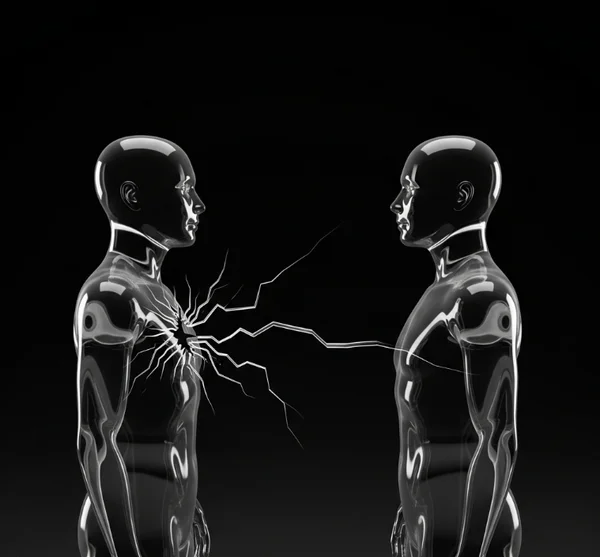What Is Intermittent Explosive Disorder (IED)? A Guide
July 6, 2025 | By Sophia Galloway
Do you ever feel your anger is a volcano, erupting with a force that feels beyond your control? One moment you are calm, and the next, a wave of rage overwhelms you. If this sounds familiar, you're likely asking a critical question: What is intermittent explosive disorder? This guide offers clear, compassionate answers. It's time to understand the patterns behind explosive anger and realize you are not alone. A great first step towards clarity is to start with our free, confidential assessment.

What Exactly Is Intermittent Explosive Disorder?
Many people feel intense anger, but Intermittent Explosive Disorder (IED) is much more than a "bad temper." IED is a recognized mental health condition. It's defined by recurrent outbursts where an individual fails to control their aggressive impulses. These episodes of explosive anger are sudden, intense, and completely out of proportion to what triggered them.
A Clear Definition Beyond a "Bad Temper"
Unlike a bad temper, IED involves a true loss of control. This isn't about feeling angry; it's about anger controlling you. Individuals often feel a building pressure before an outburst, followed by relief, and then deep regret or shame. The key is the recurring pattern of losing control.
The Core Feature: Disproportionate Explosive Anger
Imagine spilling a glass of water and reacting with a screaming tirade. This disproportionate reaction is the hallmark of IED. The aggressive response is far more intense than the situation warrants.
Differentiating Between Verbal and Physical Aggression
The outbursts in IED can manifest in several ways:
- Verbal Aggression: Temper tantrums, tirades, and heated arguments.
- Physical Aggression: Damaging property or engaging in physical fights.
What Are the Official DSM-5 Criteria for IED?
Mental health professionals use the Diagnostic and Statistical Manual of Mental Disorders (DSM-5), published by the American Psychiatric Association, for diagnosis. The dsm 5 criteria for intermittent explosive disorder provide a clear framework.

Disclaimer: This information is for educational purposes only and is not a substitute for professional medical advice. A formal diagnosis must be made by a qualified healthcare professional.
Recurrent Outbursts: How Often Is "Often"?
The DSM-5 outlines two main patterns:
- High-Frequency, Low-Intensity: Verbal aggression (or non-damaging physical aggression) happening, on average, twice a week for three months.
- Low-Frequency, High-Intensity: Three outbursts involving property damage or physical assault within a single year.
The Magnitude of Aggression Explained
A crucial point is that the aggression is grossly out of proportion to the provocation. This helps separate IED from justified anger.
The Aftermath: Distress and Impairment in Life
The outbursts must cause significant distress to the individual or impairment in their work, social life, or relationships. This can also include legal or financial problems.
Ruling Out Other Mental Health Conditions
The aggression cannot be better explained by another condition (like bipolar disorder) or be due to a substance or another medical issue.
Common Signs and Symptoms of IED You Shouldn't Ignore
How do I know if I have IED? Recognizing the signs is the first step. These symptoms fall into behavioral, emotional, and physical categories.
Behavioral Signs: From Tirades to Property Damage
- Engaging in heated, intense arguments
- Having severe temper tantrums
- Shouting, screaming, and fighting
- Throwing, breaking, or damaging objects
Emotional Signs: Irritability, Rage, and Overwhelming Urges
- Intense irritability and anger that appear suddenly
- An overwhelming sense of rage during an episode
- Feeling a complete loss of emotional control
Physical Signs: Tremors, Palpitations, and Chest Tightness
Before or during an episode, some people experience:
- A rush of energy or adrenaline
- Tremors or tingling sensations
- Heart palpitations or a racing heart
- A feeling of tightness in the chest
If these signs resonate with you, it's time to gain more insight. You can begin to understand your patterns with a confidential anger self-assessment.
How IED Impacts Daily Life and Relationships
The consequences of untreated IED create a ripple effect of negativity through every part of a person's life.

Strain on Family, Friendships, and Romantic Partners
Loved ones may feel like they are "walking on eggshells," afraid of triggering an outburst. This fear damages trust and intimacy, often leading to broken relationships.
Challenges at Work or School
Outbursts in a professional setting can lead to disciplinary action or job loss. They can harm a person's reputation and make collaboration difficult.
The Toll on Your Own Mental and Physical Health
Living with IED is exhausting. The cycle of tension, explosion, and regret can contribute to depression and anxiety. High stress levels can also lead to physical health problems.
The First Step: Think You Might Have IED?
Reading this guide is a courageous first step. The next step is to gather more personalized information in a safe, private way.
Why Self-Assessment Is a Powerful, Private Starting Point
While only a professional can provide a diagnosis, a self-assessment is an invaluable tool. It helps you reflect on your experiences, providing insights to guide your next steps and inform a conversation with a healthcare provider.
Take Our Free, Confidential IED Assessment Now
We offer a free and secure intermittent explosive disorder test to help you identify patterns of explosive anger. It’s your chance to move from wondering to understanding. Get personalized insights with our free, confidential assessment.

You Are Not Alone, and Help Is Available
If you recognize yourself in this guide, please know this: IED is a real, treatable condition, not a character flaw. With the right support, like therapy and sometimes medication, you can learn to manage aggressive impulses and build a more peaceful life.
What you have learned here is your foundation. The next step in your journey is yours to take.
Frequently Asked Questions About IED
What is the main cause of IED? There is no single cause. It is likely a mix of genetic, biological, and environmental factors. It often runs in families and may be linked to brain chemistry. Many with IED also grew up in homes where explosive behavior was common.
Can intermittent explosive disorder be cured? While "cure" is a strong word, IED is highly treatable. With consistent therapy, individuals can gain significant control over their impulses and learn healthier ways to cope with anger. To see what a path forward looks like, you can learn more on our website.
Is IED a form of bipolar disorder or just anger issues? They are different. Bipolar disorder involves prolonged mood episodes (mania and depression). IED outbursts are brief and not tied to these sustained mood shifts. It is more than "just anger issues" because of the distinct loss of control.